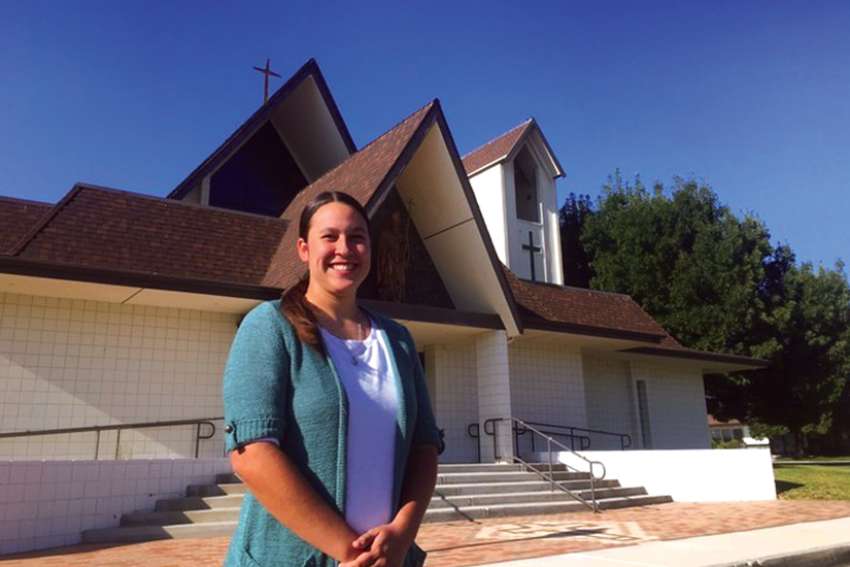Churches are not able to fully open, and there are different rules in provinces across the nation as society returns gradually to a new reality brought on by the coronavirus pandemic. Capacity limits vary across Canada, but at least parishes are welcoming the faithful once again.
Many youth, however, are finding the return to Mass has not been exactly what they would have pictured a few months ago. Masks, sanitization, social distancing and new directives for the reception of Holy Communion are all new and many are finding the experience odd.
As an usher, 23-year-old Blake Taylor participated in the discussion to re-open Our Lady of Lourdes Parish in Pembroke, Ont. He understands his responsibility for ensuring parishioners abide with new public safety guidelines.
“I am expected to guide and lead people by example, following the social distancing rules and sanitizing,” said Taylor. “I do see the purpose and importance of wearing masks because I work in health care, and it’s predominantly an older parish. It’s for their safety that I should wear them, so I don’t see it as an intrusion of my freedom. I can’t put my freedom over the fact that I could be asymptomatic and spread the virus.”
One of the biggest changes revolves around receiving Communion. Most dioceses have banned parishioners from receiving Communion on the tongue and there is no drinking the blood of Christ.
Twenty-year-old Sarah Rodriguez of Tehachapi, Calif., said her parish of St. Malachy debated over the reception of Holy Communion prior to re-opening in June. Not all parishioners were happy with the new rule.
“Our parish asked the bishop for his advice. He replied that parishioners couldn’t be denied the reception of Communion on the tongue,” she said. “Our priest administers on the tongue, but it’s not recommended.”
Rodriguez and her family continued to receive the host on the tongue, but a recent surge in COVID-19 cases has again forced many California churches to close and return to live-steamed Masses, which Rodriguez says isn’t perfect.
“We would stream Mass and say family prayers, but it wasn’t the same,” said Rodriguez. “When I was finally able to go to Mass again, it was so peaceful, and I felt like I was home again.”
Mary Zwicker, 19, wasn’t happy about celebrating with a virtual Church.
“During quarantine, you got to see how atheists lived — how the whole world lives,” said Zwicker. “We were without communion for months. Sunday was just another day, there was nothing on Sunday.”
Without the physical building of St. Clement’s Parish in Ottawa, Zwicker felt a lost connection to prayer. “You had to make a really big effort to pray harder and make room for your spiritual life,” she said.
Zwicker prefers Communion on the tongue. She is able to now as St. Clement’s, which is run by the traditional Priestly Fraternity of St. Peter, received a dispensation from the archbishop to continue the reception of Communion on the tongue.
“Communion is something so sacred, and it’s worth doing right, so why not take the extra step for something so important?”
(Gay, 20, is a third-year student at Our Lady Seat of Wisdom College in Barry’s Bay, Ont.)


